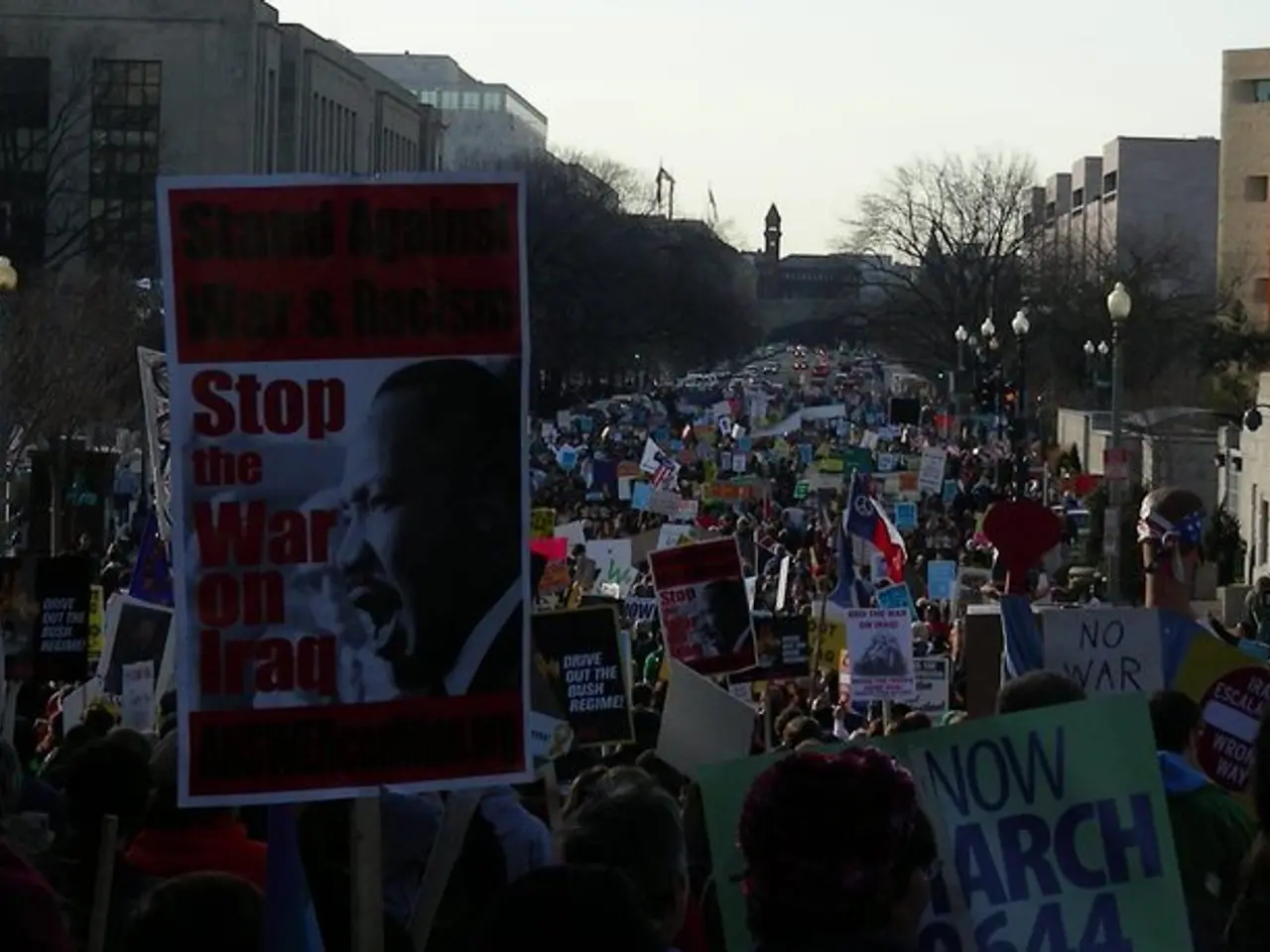Disorder breaks out during anti-government demonstrations in Serbia, leaving dozens of individuals hurt
In the heart of Serbia, protests led by university students have escalated into violent confrontations between government supporters and anti-government demonstrators. The clashes, which have rocked the country for several days, have taken place primarily in Belgrade, but a significant incident occurred in Vrbas, northwest of Belgrade, outside the ruling Serbian Progressive Party offices.
The unrest began as a peaceful demonstration but took a turn for the worse when government supporters hurled flares, rocks, and bottles at protesters in Vrbas. In response, protesters retaliated by hurling various objects back at their attackers. The clashes resulted in dozens of injuries, including 16 policemen, and the deployment of riot police who used tear gas and force to quell the disturbances.
The violence in Vrbas marks a significant escalation of violence at protests in Serbia, and it reflects the growing polarization within the country. Critics have accused the administration of President Aleksandar Vučić of authoritarian practices and excessive police violence. The deployment of armored vehicles and harsh crowd control measures by the government indicates a firm stance to suppress dissent.
The clashes have posed significant challenges to Vučić's rule, potentially undermining his legitimacy and exacerbating political instability. In response, protesters have called for the ouster of Interior Minister Ivica Dacic over recent violence at demonstrations. They are also demanding that President Vučic calls an early parliamentary election.
However, the Serbian government has not announced any measures to deescalate the situation or address the demands of the protesters. The ruling Serbian Progressive Party has also remained silent on the matter, failing to issue an official statement regarding the clashes in Vrbas.
It is important to note that these clashes are happening in a broader context of growing tensions since late 2024, initially sparked by incidents like the railway station collapse and concerns over government accountability and police brutality.
The protests in Serbia, which were largely peaceful until these clashes, have intensified, raising concerns about the future of the country's political landscape. As the situation continues to unfold, it is crucial for all parties involved to seek peaceful resolution and uphold the principles of democracy and rule of law.
Read also:
- Discussion between Putin and Trump in Alaska could potentially overshadow Ukraine's concerns
- Massive 8.8 earthquake hits off the coast of Russia's Kamchatka Peninsula, prompting Japan to issue a tsunami alert.
- Court petitions to reverse established decision on same-sex marriage legalization
- Independence supporters in New Caledonia refuse agreement offering authority without a vote on sovereignty







